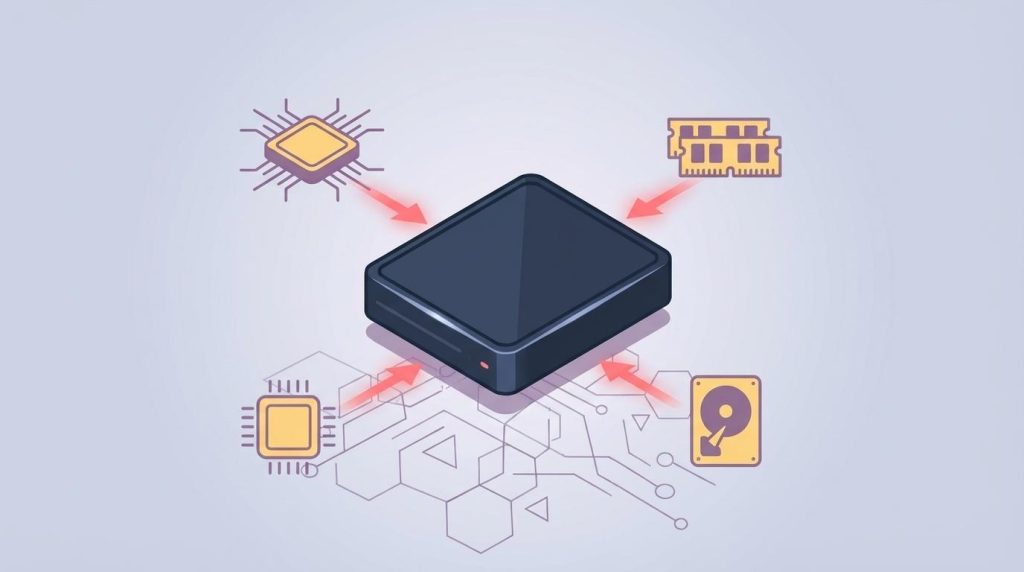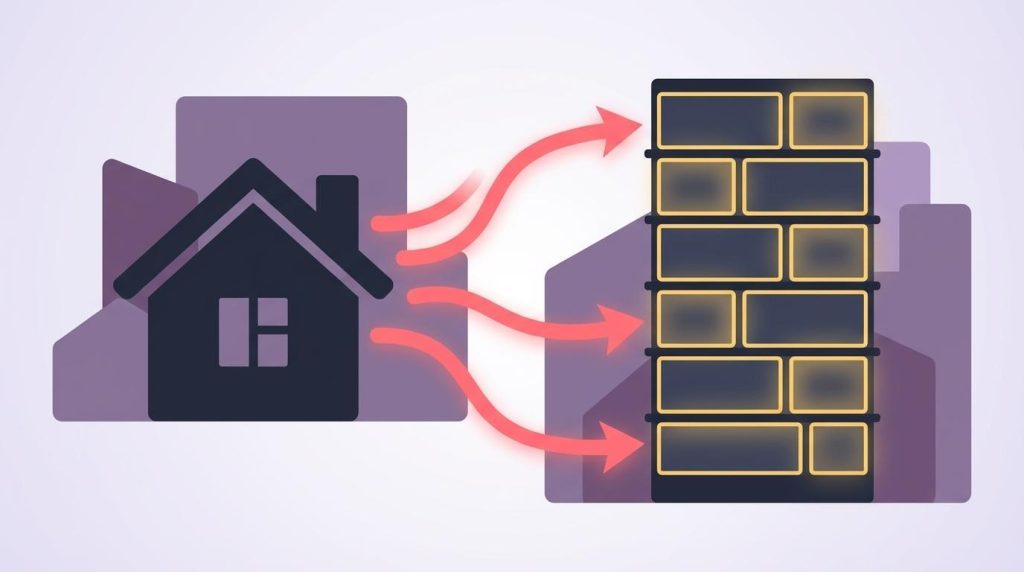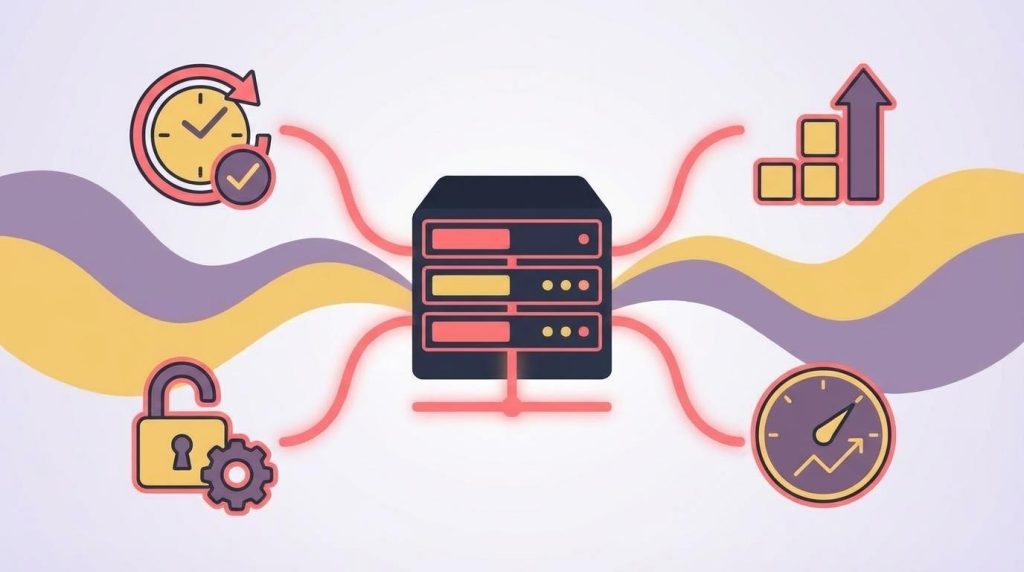Here’s another educational blog post from Mixal — today, we’re breaking down the real differences between VPS and VPN.
They might look almost identical on paper — and they sure sound similar — but in practice, they live in completely different worlds.
Think of a VPS like a computer whose case lives in a professional, high-grade data center, while its monitor, keyboard, and mouse sit on your desk at home. You manage it remotely, but it works for you just as if you owned it physically.
A VPN, on the other hand, is more like changing your car’s license plate so you can drive around town without being identified the same way. It hides your real IP address and lets you appear as if you’re connecting from somewhere else. Useful? Absolutely. But very different from a VPS.
VPS (Virtual Private Server) — What Is It?

A Virtual Private Server is essentially a powerful virtual computer with its own RAM, storage, and CPU — carved out of a larger physical server through virtualization software. Data centers (the “homes” of these machines) follow strict maintenance standards, and the resources are divided among multiple VPS instances.
For example, your plan might include 2 GB of RAM and 10 GB of storage — enough for a solid hosting experience, without you having to worry about the underlying hardware upkeep. Companies like Mixal provide these with both Linux and Windows options, and you get full admin/root access, allowing you to install software, configure security settings, and run specialized applications.
A Simple Metaphor: From Houses to Apartments

Picture a single-family home with a big yard — only one household inside. Now imagine an architect turning that house into an eight-unit apartment building. Same physical space, but now multiple families share it, each in their own private unit.
- House (before) → Physical server
- Apartment units → VPS instances
- Architect → Virtualization software like Hyper‑V or VMware
Mixal’s Canadian VPS services work the same way: you choose the specs (RAM, storage, CPU, OS), and the company sets it up in the data center of your choice — whether in the U.S. or abroad.
Advantages of Using a VPS

With a VPS, you’re essentially getting a private environment that you can access from almost any device — desktop, laptop, smartphone, or tablet. Here are some reasons professionals opt for VPS hosting:
- A dedicated, fixed IP address from the country of your choice
- Full admin/root access in Windows or Linux environments
- The freedom to install your preferred software
- Easy scalability when you need more resources
- 24/7 customer support
- Hosting multiple websites in one server environment
- Faster speeds and more stable performance compared to shared hosting
Mixal’s managed VPS and unmanaged VPS plans also offer options tailored for trading, development, or high‑traffic business websites.
What Is a VPN (Virtual Private Network)?

A VPN is a secure, private network connection between your device and the internet. It encrypts the data you send and receive so no one can snoop on your activities — much like manufacturing a high‑security lock that can’t be picked without the proper key.
It’s often used to:
- Change your IP address so you can access content restricted in your region (for example, Netflix libraries in other countries)
- Protect sensitive information when using public Wi‑Fi in coffee shops, airports, or hotels
- Secure remote access to a company’s internal network
However, VPNs come with some trade‑offs:
- Reduced speed due to encryption overhead
- Risk of malware or keyloggers if the VPN provider isn’t trustworthy
- Possible connection drops or blocked IP ranges by certain websites
- Increased battery use on mobile devices
VPS vs. VPN — The Real Differences
A VPS gives you:
- A full operating system environment (Windows or Linux)
- Dedicated IP and server resources
- Ability to host websites, run applications, and configure long‑term setups
- Stability — IP won’t change unless you reconfigure it
A VPN gives you:
- Temporary IP changes for privacy or content access
- Secure browsing through encryption
- No hosting capability — purely a connectivity and privacy tool
For crypto trading or any activity requiring a stable, long‑term IP, a VPS from Mixal is the more reliable choice. VPNs may drop connections or change IPs unexpectedly.
FAQ — Your Questions Answered
- VPS or VPN — Which is better?
It depends on your goal.
A VPS acts like a permanent, always‑on computer located wherever your provider hosts it. If Mixal’s data center is in the U.S., you get a fixed U.S. IP; if it’s abroad, you get that country’s IP instead.
A VPN only changes your IP temporarily for browsing privacy or content access. Your IP can change every time you disconnect and reconnect.
- What’s the main purpose of a VPS?
A VPS is a virtual operating system running on a larger “parent” server. Using virtualization technology, it offers dedicated RAM, CPU, and storage that aren’t shared beyond your allocation. This makes it ideal for hosting websites, running apps, testing configurations, or maintaining secure online work environments.
- For crypto trading, should I choose VPS or VPN?
Definitely VPS. Trading platforms often require a stable IP address and uninterrupted access. A VPS through Mixal behaves like a permanent machine in a remote country — no sudden IP changes when you disconnect. VPNs, while great for privacy, are prone to dropped connections and IP rotations.
Bottom Line
While VPS and VPN share a few letters in their names, they serve entirely different purposes. VPS hosting is about power, control, and stability — the kind of environment you’d choose for serious projects, from hosting a website to running financial trades. VPNs are your privacy shield for browsing, not your workhorse for running online services.
If you’re ready to explore the flexibility and stability of VPS hosting for your next project, Mixal offers scalable plans in multiple global data center locations, with the option to fine‑tune every detail to your needs.

